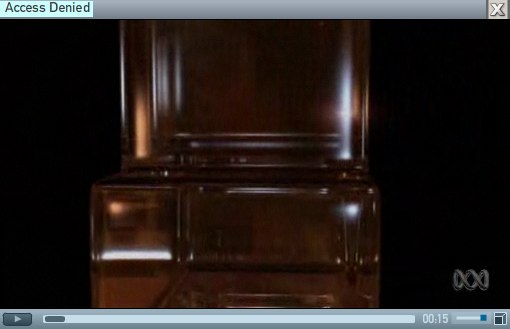Today was officially “Quit Facebook Day”, whereby 24,000 users – out of 400 million – threatened to quit over privacy issues. I was on “The Circle” today to discuss the issue – and it was good fun. Watch below.
- August 2016
- July 2016
- March 2016
- February 2016
- April 2015
- January 2015
- December 2014
- October 2014
- September 2014
- August 2014
- July 2014
- July 2011
- June 2011
- May 2011
- April 2011
- March 2011
- February 2011
- January 2011
- December 2010
- November 2010
- October 2010
- September 2010
- August 2010
- July 2010
- May 2010
- April 2010
- March 2010
- February 2010
- January 2010
- December 2009
- November 2009
- September 2009
- August 2009
- June 2009
- April 2009
- February 2009
- January 2009
- November 2008
- February 2008
- January 2008
- December 2007
- November 2007
- October 2007
- April 2007
As some of those close to me will know, I have recently resigned my membership in the ALP and joined the Greens. Although it might seem a sudden move to some, it has been a long time coming and was not an easy decision or one taken lightly. I’m still new to the party, but I have learned enough to know that I have definitely made the right decision. If you’re curious as to my reasons and experiences, please read on.

Why I joined the Labor Party
I don’t have a background in student politics – I came to political involvement much later in life. I joined the ALP when I lived in California. My political consciousness, while probably not underdeveloped compared to the average voter, was prodded by the continuing outrages of John Howard and George Bush. By the time the Tampa affair, Iraq and Guantanamo Bay were all unfolding, I felt something had to be done – if for no other reason but to feel a little less powerless.
Four Corners tonight tackled internet censorship in an episode entitled “Access Denied”. For a debate ruled, like most debates, by sound bites – “child pornography”, “censored like North Korea” – I was excited to see the issue get a detailed examination over 40-odd minutes of quality investigative journalism.
I thought they did a good job. There was, as usual in this discussion, much emphasis on the evil content on the internet without really pointing out how the vast majority of people use the internet the vast majority of the time without any unpleasantness whatsoever. There was, for some reason, a lot of filler shots of porn sites themselves. But several sides of the debate got an airing that we wouldn’t normally hear. At about 12 minutes in, teenager Justin Katz is asked about whether kids need to be protected from nasty material, and he says exactly what you’d expect from a sane person: “I think if you just have common sense and the right attitude you don’t need to be protected from anything, that with just a straight mind you’ll know what’s right and you’ll know what’s wrong.”
The pro-filter camp included some of the usual suspects like Jim Wallace and Clive Hamilton. Clive did not disappoint with his rhetoric about “perverse and extreme sexual practices”. The phrase “penetrated in every orifice” quickly made an appearance along with “bestiality” and “copraphilia.” (Eww. I start to worry about what’s on Clive’s hard drive for research purposes.) Unfortunately for my self-image someone on twitter pointed out that Clive and I look somewhat similar: “Clive Hamilton and Colin Jacobs are both bald w/glasses. But Clive has the look of a man who doesn’t get laid much.” Thanks, @renailemay.
I also though the producers did a good job highlighting the democratic dangers and putting the lie to the government’s “child pornography” rhetoric by showing some much more controversial material that would be blocked, and is currently prohibited. The oldies learning about proxies and the outraged anti-abortion candidate certainly illustrated this important point.
I also found it surprising that they discussed how the current classification scheme applies to normal adult material, with Fiona Patten of the Australian Sex Party showing the audience how some pirate porn needs to split the swashbuckling violence onto a separate DVD to the piratical sex in order to pass classification muster. I think most Aussies have little problem with the idea of adults being able to watch this sort of harmless material, and it was a good and light-hearted counterbalance to the worst-of-the-worst rhetoric we normally get.
I’m in there with a couple of grabs about how the filter was presented to the electorate and how it has since changed. Mark Newton had better material with his final line, though (spoiler alert): “The idea that the internet is this scary place that parents don’t understand, that everyone needs protection from, isn’t a view that’s held by most of society . What it really is is a scary place that politicians don’t understand and politicians need protection from, and that’s why we’re having this debate now.”
You can watch the show at the Four Corners site or on ABC iView.
The topic was also discussed on Q&A after Four Corners. Kaiser Kuo, who I have followed and read since living in China, had me worried but actually proved to be an eloquent opponent of censorship under all but the most extraordinary circumstances. A poll of the audience showed the overwhelming majority against the filter. Brett Solomon stuck up for us internet-loving nerds with genuine passion. Definitely worth checking out on iView.
Today’s sacking of Catharine Deveny by the Age is the latest in a string of people getting in trouble for offensive tweeting. Nick Snowden was kicked out of the Liberal party only a couple of weeks ago.
I think this is a terrible move by Age and sends a terrible message. Is it too much to hope our newspapers might wear a little embarrassment for the sake of erring on the side of free expression?
Is The Age suggesting that Catharine is an advocate of child sex, as evidenced by her tweet? If so, the sacking might indeed be justified. Some views are too extreme or offensive to the public to want to have them associated with your organisation. As a media organisation, I wouldn’t want to employ virulent racists, for instance – not only are they unpleasant people, it would be bad for business. Encouraging promiscuity in 11-year-olds would be a pretty extreme and offensive position to most people.
However, if The Age doesn’t believe that’s Catharine’s position, it must believe the tweet was a joke – an offensive, off-colour joke. This means that they fired a humorist, known (and hired) for being edgy, for making a one-sentence offensive joke on her own time in another medium.
To me that’s obviously no way to run a newspaper. A newspaper can employ somebody who writes something they wouldn’t publish in another medium, surely. Are Age columnists all constrained to having opinions that are uncontroversial enough for the papers of a daily broadsheet, even when not on the Fairfax clock?
This trend concerns me a bit. Imagine I make an embarrassingly off-colour joke today, then I run for office in 10 years time. Must I defend everything, including its context, lest it be held up forever as an example of ignorance, insensitivity, bigotry, or just a ribald sense of humour? I’d be worried if all of our future politicians are selected from only those who, in their 20s, never dared to write something embarrassing.
I hope Catharine finds another outlet for her writing.
For more corporate censorship fun, if you missed it, see my article on the iPad in New Matilda last week.

